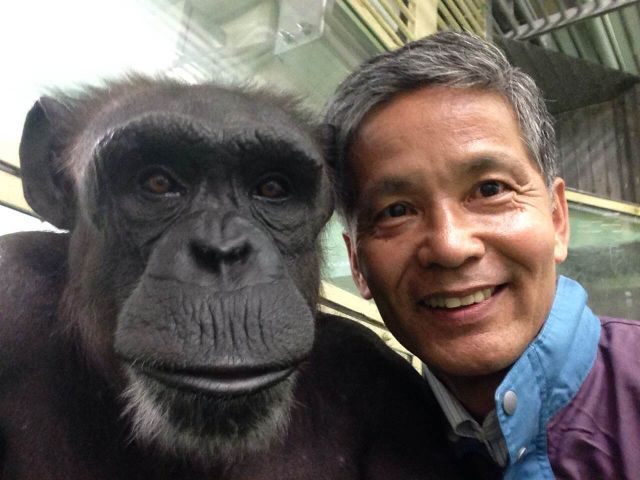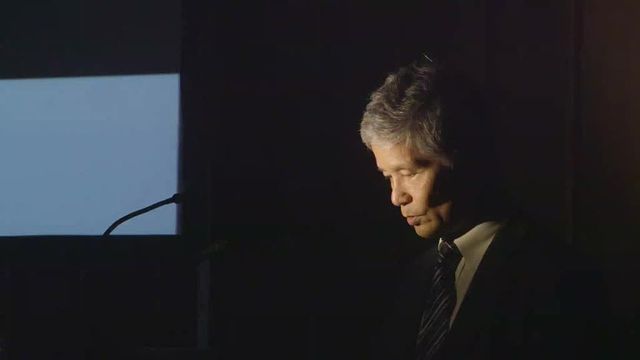The Evolutionary Origins of Human Mind and Culture: Insights from Research on Japanese Monkeys and Chimpanzees
Lecture by Tetsuro Matsuzawa, Kyoto University
With simultaneous translation in German and English

Tetsuro Matsuzawa, current president of the International Primatological Society, has been researching chimpanzee cognition for over thirty years, both in the laboratory and in the wild. In his talk he will give an insight into the cultural variations of behavior of monkeys in Japan as well as present a possible evolutionary scenario of cognition that is uniquely human.
Humans and chimpanzees are largely similar at early developmental stages, however, there remain several crucial differences. Chimpanzees have been very rarely observed to engage in general imitation and active teaching. Young chimpanzees possess exceptional working memory capacities often superior to those of human adults. In contrast, their ability to learn the meaning of symbols is relatively poor. The development of social cognition and culture in humans may be integrally linked to a very specific mother-infant relationship and the species-specific way of rearing the children.
Tetsuro Matsuzawa is a Professor at the Primate Research Institute, Kyoto University, Japan. The ‘Ai Project' began in 1978 with the study of language-like skills and number concepts in the female chimpanzee, Ai. As a parallel effort, since 1986, he has recorded the behavior of a group of chimpanzees in Bossou-Nimba, Guinea, West Africa. His publications include: "Primate origins of human cognition and behavior", 2001; "Cognitive development in chimpanzees", 2006; "Chimpanzees of Bossou and Nimba", 2011. He was awarded the Jane Goodall Award in 2001, the Medal of Purple Ribbon in 2007, and the Person of Cultural Merit in 2013. He is also the Editor-in–chief of the journal “Primates”, the general director of Japan Monkey Centre.

